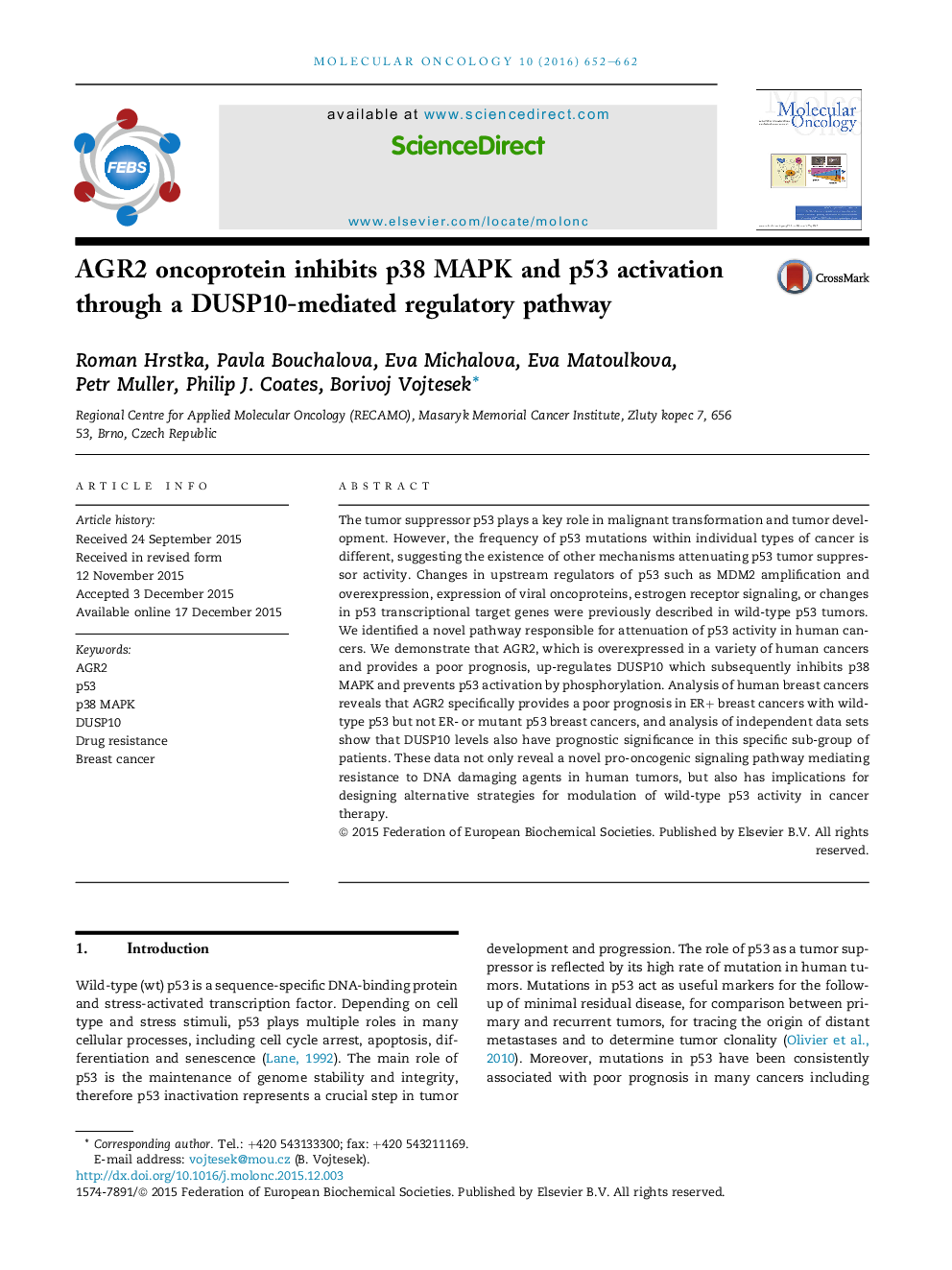| Article ID | Journal | Published Year | Pages | File Type |
|---|---|---|---|---|
| 10914505 | Molecular Oncology | 2016 | 11 Pages |
Abstract
The tumor suppressor p53 plays a key role in malignant transformation and tumor development. However, the frequency of p53 mutations within individual types of cancer is different, suggesting the existence of other mechanisms attenuating p53 tumor suppressor activity. Changes in upstream regulators of p53 such as MDM2 amplification and overexpression, expression of viral oncoproteins, estrogen receptor signaling, or changes in p53 transcriptional target genes were previously described in wild-type p53 tumors. We identified a novel pathway responsible for attenuation of p53 activity in human cancers. We demonstrate that AGR2, which is overexpressed in a variety of human cancers and provides a poor prognosis, up-regulates DUSP10 which subsequently inhibits p38 MAPK and prevents p53 activation by phosphorylation. Analysis of human breast cancers reveals that AGR2 specifically provides a poor prognosis in ER+ breast cancers with wild-type p53 but not ER- or mutant p53 breast cancers, and analysis of independent data sets show that DUSP10 levels also have prognostic significance in this specific sub-group of patients. These data not only reveal a novel pro-oncogenic signaling pathway mediating resistance to DNA damaging agents in human tumors, but also has implications for designing alternative strategies for modulation of wild-type p53 activity in cancer therapy.
Related Topics
Life Sciences
Biochemistry, Genetics and Molecular Biology
Cancer Research
Authors
Roman Hrstka, Pavla Bouchalova, Eva Michalova, Eva Matoulkova, Petr Muller, Philip J. Coates, Borivoj Vojtesek,
